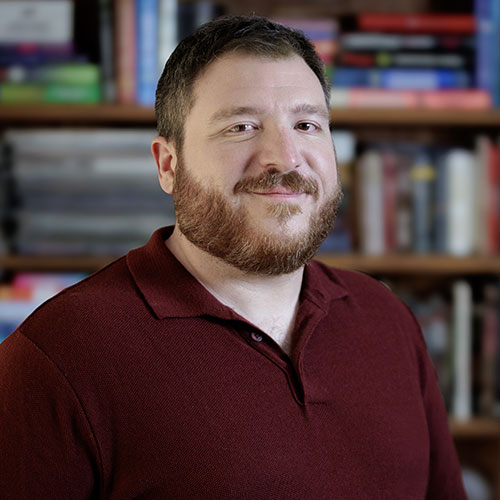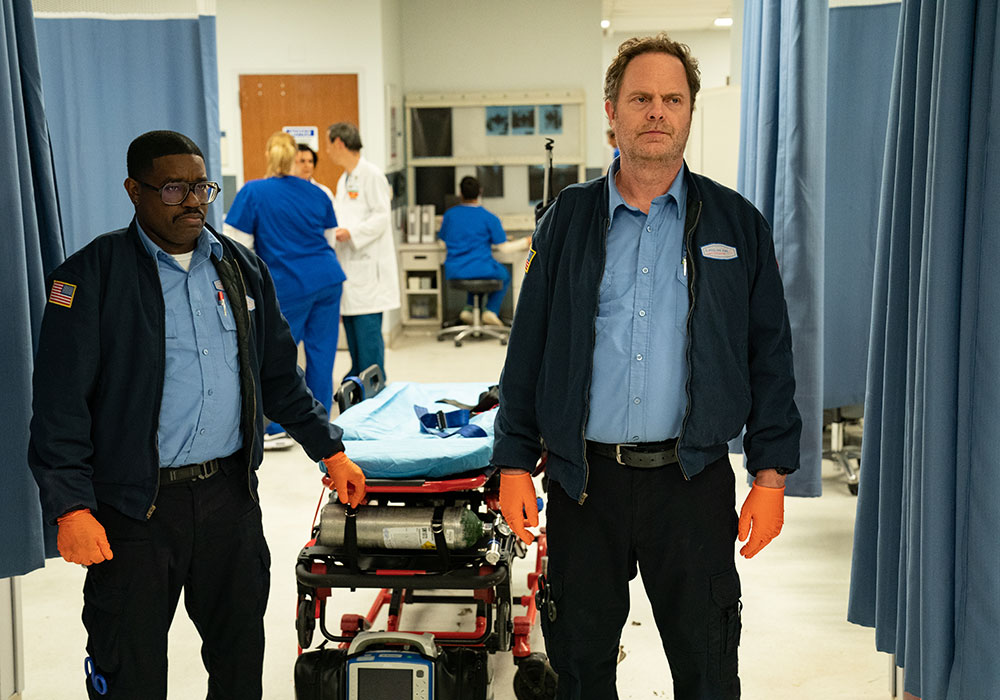Patrick Pianezza dreamed of being a physician one day, but fresh out of high school the Illinois native was enrolled in an EMT course at Lincoln Land Community College. He needed the credit hours to stay on his parents’ health insurance, and it was at least a step in the right direction. But as he arrived at the local emergency room for his first-ever clinical shift, a brand-new stethoscope draped around his neck, his mind was swimming: Would he be good at medicine? Would he even like it?
That was 2000, and what happened next felt like a scene from E.R. or Chicago Hope. Just as Pianezza was entering the trauma room, a patient was rushed in, mid-cardiac arrest.
“I open the door — this is back when they had the handheld paddles — and the doc is like, ‘Clear!’ BAM!” says Pianezza. “As soon as he did that, I was like, ‘This is the coolest thing ever.’ I was hooked.”
After his day one trauma room experience, Pianezza breezed through the EMT certification process, became a paramedic and spent the next four years working nightshifts at the ER. And he continued as a paramedic even after he moved to South Carolina and enrolled at USC.

By day, he majored in public relations at the School of Journalism and Mass Communications but when he wasn’t in class, he served as a paramedic crew chief for Lexington County, South Carolina, and worked as a campus first responder through Student Health Services.
Helping people in their most vulnerable moments was rewarding, he says. It was exhilarating. But it was also a lot to deal with. EMTs see death and graphic injuries. They see families grappling with shock and grief. The pressure is high, and the hours are long, but the pay is among the lowest in the health care industry.
He still loved the work, but the longer he did it, the greater the toll it took on his mental health. There was also a disconnect between his life as a student and his life as a paramedic.
“I would go to class, and everybody is worrying about the next football game, and I’m sitting here like, ‘Jesus Christ, I just declared a family of four dead yesterday,’” he says. “We were kind of in different worlds. Trying to mash those two together was challenging.”
Finally, he hit a wall.
“I remember talking to one of my supervisors, and it's not his fault, but I told him, ‘Look, I am burnt out,’” Pianezza says. “And he said, ‘We're all burnt out. Get back on the truck.’”
And then one morning Pianezza dragged himself to his creative writing class where the professor, Ben Greer, offered a time-tested bit of advice. The class was preparing for an upcoming assignment, and Greer boiled the writing process down to four simple words: write what you know.
“I had just come off this hellacious 14-hour shift — our normal shifts were 12,” Pianezza says. “I was dead tired, and I go, ‘Oh, you want a story? OK, fine.’ I went home and cranked out this 36-page short story about EMS and burnout and the nonsense that we see and just kind of distilled years of experience into this one guy’s shift.”
“Fake Stories from a Real Ambulance Driver” — a joke because EMTs hate being called ambulance drivers, he says — earned an A-minus. Not bad for a first stab. It also felt good to channel his stress into something creative.
“One of the things the university provided,” he says, “beyond the mentorship and the camaraderie with students was really a place where I felt free enough to find myself and be comfortable in my own skin while still struggling with this burnout and issues of feeling like I didn’t belong, because at the time I was carrying the weight of the world on my shoulders.”
The creative writing assignment was long forgotten by the time Pianezza graduated with his bachelor’s in 2006, and a career in writing was the furthest thing from his mind. On the suggestion of philosophy professor Margaret Houck, who taught one of Pianezza’s medical humanities courses, he stuck around two more years for a master’s degree in health administration. After completing a residency program at Johns Hopkins Hospital, he moved to California, where his younger brother Paul was also living, and began working in patient experience.
Paul, who had a job at a Los Angeles post-production house with writer and director Chris Leone, encouraged him to do what everyone in L.A. does regardless of their day job: Write a movie. Maybe Patrick had a story in him with Hollywood potential.
Once again, the older Pianezza drew from what he knew. He dusted off the short story from undergrad and turned into a script. It wasn’t great, he admits — first drafts rarely are — but it was “good enough.” Paul convinced Leone to take a look, and over the next 10 years, Leone and Patrick connected regularly, rewriting the script together.
“One of the things the university provided, beyond the mentorship and the camaraderie with students, was really a place where I felt free enough to find myself and be comfortable in my own skin while still struggling with this burnout and issues of feeling like I didn’t belong, because at the time I was carrying the weight of the world on my shoulders.”
Their big break came when the script landed in front of The Office’s Rainn Wilson, who got Wayfarer Studios involved. “And then we were off to the races and production,” Pianezza says. “So it was literally nothing, nothing, nothing, nothing, nothing … then the brakes fell off.”
Code 3, which hit theaters Sept. 12, follows the final 24-hour shift of burned-out paramedic Randy, played by Wilson, as he trains his replacement. Pianezza served as technical consultant, ensuring that the medical care depicted in the movie was as realistic as possible. His brother was lead producer, and co-writer Leone also directed the movie.
And while the film is billed as action-comedy, Pianezza feels he captured the tough realities of EMT life.
“This movie is my love letter to EMS, especially during my formative years as a young adult,” he says. “This is what I felt compelled to do, and I loved every minute of it. I loved the work, but I hated the job. This film was really cathartic to put together and revise over time.”
It has also inspired him to keep writing. He never expected to become a screenwriter when he was in Greer’s creative writing course, but then he never expected the script he wrote about his experiences as an EMT to come alive on the silver screen.
“Preparation meets opportunity — that’s how you get lucky,” he says. “But I also don’t take it for granted. I know I’m not the most talented writer in Hollywood. I just know that I got a shot, and I was good. Hopefully we get to do a lot more.”
